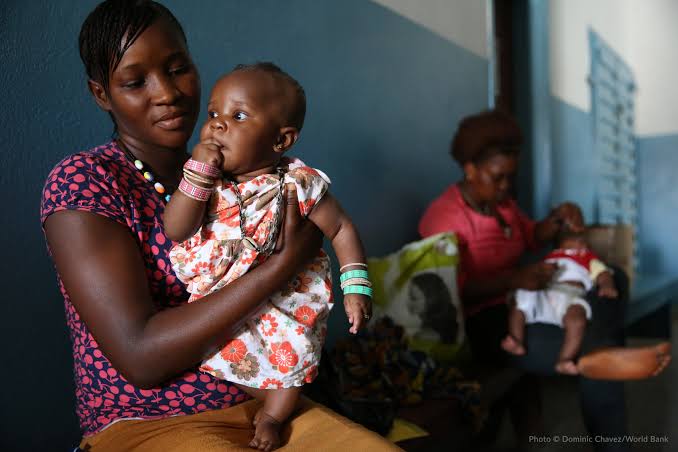The recent revelation that over 652 children died of acute malnutrition in Katsina State within just the first six months of 2025 is a harrowing reminder of the human cost of bad governance. These deaths, recorded by Médecins Sans Frontières (MSF), represent only the cases reached by humanitarian responders—hundreds more may remain undocumented in remote and conflict-affected communities.
According to the United Nations Educational, Scientific and Cultural Organisation (UNESCO), an estimated three million children are currently suffering from severe acute malnutrition (SAM) in the country, up from 2.6 million in 2024.
Of these, 1.65 million are in six conflict-affected northern states—Zamfara, Bauchi, Sokoto, Borno, Kebbi, Kano, and Katsina—areas that MSF operates in. Many organisations have described malnutrition as a public health emergency in Nigeria. This tragedy reflects a deeper failure of leadership, particularly in northern Nigeria, where state institutions continue to crumble under the weight of elite detachment and systemic neglect.
The Katsina malnutrition crisis reflects a wider regional malaise. Insecurity has displaced thousands of rural farmers, cut off food supply chains, and left communities vulnerable to hunger and disease. Yet the real catastrophe lies in the absence of an effective state response. It is the silence, the inaction, and the persistent failure of public officials to treat food and health as rights—not privileges—that has turned hunger into a death sentence for innocent children.
Governance in many northern states has become performative rather than purposeful. State governors, entrusted with the mandate to protect lives and improve welfare, are increasingly consumed by political image-building. Public funds are routinely diverted toward grandiose projects, multi-billion-naira flyovers in states with minimal traffic, sprawling government houses that serve no functional need, and extravagant ceremonies that mask a hollow legacy.
Meanwhile, rural clinics lack basic medicines, community health workers remain unpaid, and teachers and policymakers abandon local schools. In a country where children die from preventable malnutrition, a flyover is not a symbol of progress—it is a monument to failure.
The consequences of these misplaced priorities are measurable and damning. Nigeria receives substantial allocations from federal revenue, development funds, and donor support, particularly through health and education programmes. Yet northern states consistently record the lowest child health, literacy, maternal care, and nutrition scores. The contradiction is glaring; money flows, yet lives are lost. This reflects the triumph of elite capture—where governance serves the interests of the few, while many are left to fend for survival in hostile conditions. In these states, poverty is not accidental—it is manufactured by decisions taken behind closed doors.
Even where federal intervention is needed, the national response has been lethargic. The Nigerian government has failed to step up with international humanitarian support, which is retreating due to shrinking global aid budgets. No food reserves have been deployed, no federal nutrition emergency has been declared, and no coordinated response framework has been activated to prevent further loss of life. The silence from Abuja has been deafening. What kind of state looks away while its children waste away? What kind of leadership requires external outrage before it takes responsibility for internal collapse?
This newspaper believes this is a moment for reckoning, not rhetoric. The Katsina tragedy should compel an immediate national response. The federal government must declare a nutrition emergency in the Northwest and work with state governments to establish a transparent and accountable intervention mechanism. There must be a complete audit of health and nutrition spending across states like Katsina, Zamfara, Sokoto, Kebbi, and others, where development outcomes remain among the worst globally. We must end the hypocrisy of celebrating state budgets that say one thing but deliver another.
We also call for a moratorium on prestige capital projects in states facing humanitarian emergencies. Governors must meet minimum benchmarks in health, education, and food security before being allowed to commission new roads, government estates, or airports. Social investment programmes must directly reach children under five in the most vulnerable communities. This is not politics but a matter of values. A state that cannot keep its children alive has lost its moral legitimacy.
The people of northern Nigeria, especially its traditional leaders and clerics, must no longer be complicit in silence. The culture of praise-singing leaders who preside over misery must end. Honourary titles, endorsements, and public celebrations should be reserved for those who deliver measurable improvements in their people’s lives. The North cannot continue to romanticise failure while generations of children are condemned to lives of suffering—or death—by the apathy of their own leaders.
In the end, the real infrastructure of a state is not concrete. It is human life. It is the child who survives because a health worker was paid. It is the mother who sleeps peacefully knowing there is food for tomorrow. It is the community that thrives because its leaders chose compassion over self-interest. The tragedy in Katsina demands not just sympathy, but justice. If we cannot protect our children from hunger, we forfeit the right to speak of national development, of legacy, or any meaningful future.





